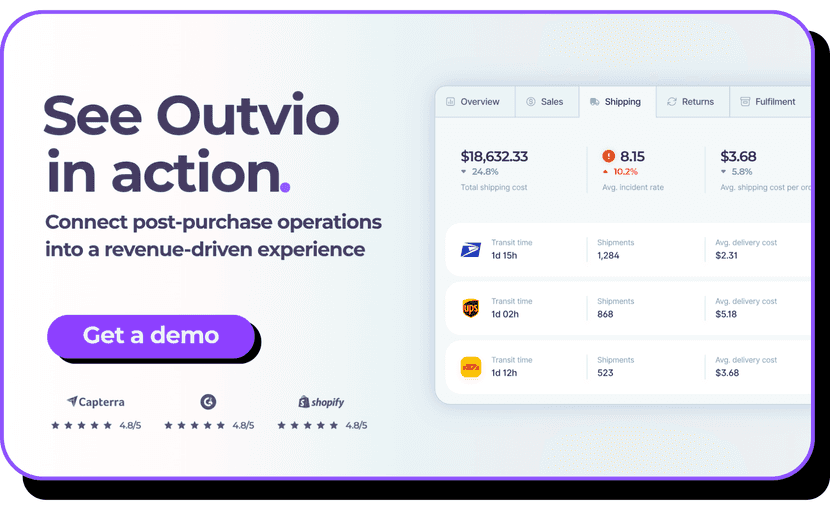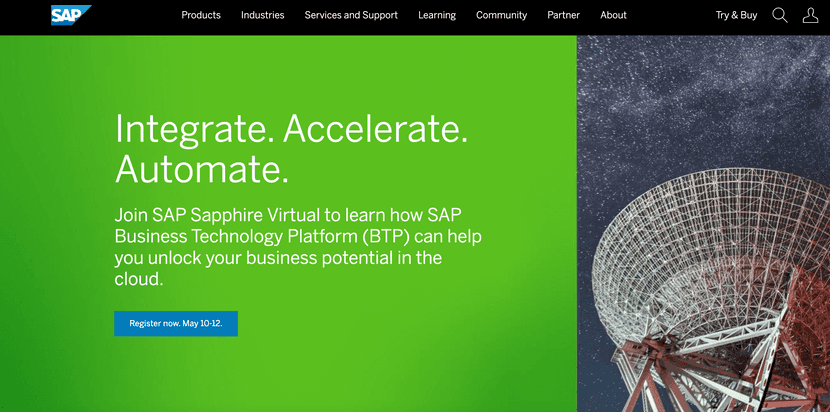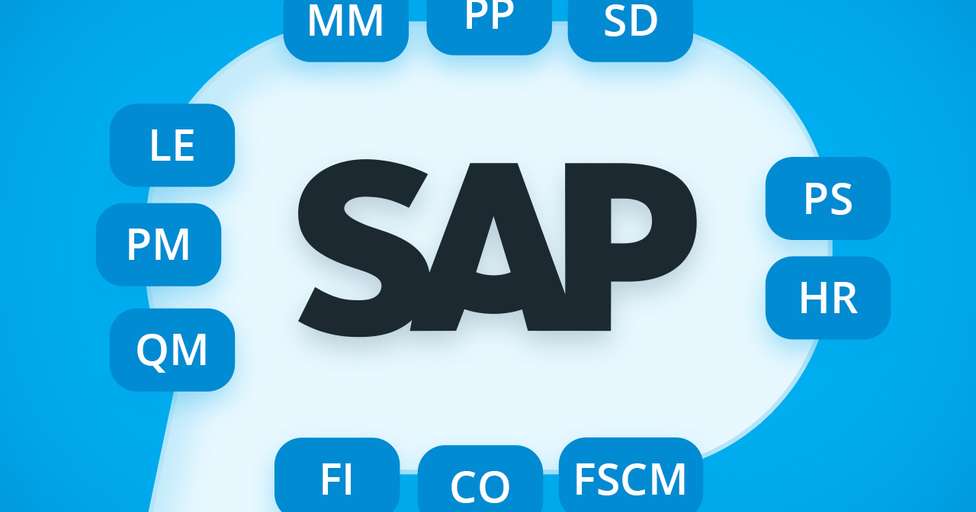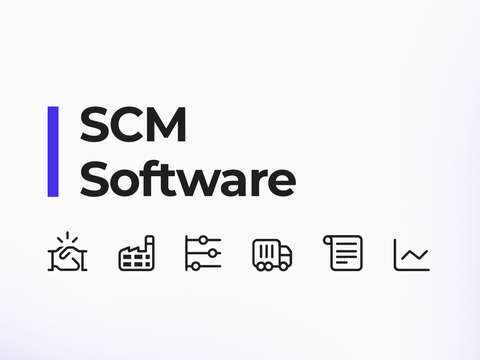SAP modules allow businesses to respond with ease to the dynamics and needs that arise in different markets and industries.
This ERP has become a cornerstone of business management worldwide. But which SAP modules are best, and which ones should you integrate into your company?
What is SAP used for?
SAP is used by companies to manage their daily operations and business processes in one place. It helps organize everything from finances and inventory to customer relationships and employee management.

What are SAP modules?
They are the different parts of the system that handle specific areas of a business—like finance, logistics, HR, or manufacturing. Each one focuses on a particular process, but they all work together within the same platform. Companies don’t need to use everything at once; they can implement only what they need based on their size, industry, or goals.
Whether it’s a cloud-based setup, an ERP suite, or a solution for supply chain or human capital management, the modular structure allows businesses to stay flexible, connect teams, and adapt as they grow.
SAP modules list for 2025
| Module | Type |
|---|---|
| SAP FI | Finance |
| SAP CO | Cost Management |
| SAP HCM | Human Resources Management |
| SAP SD | Sales and distribution |
| SAP PP | Production Control and Planning |
| SAP MM | Materials Management |
| SAP QM | Quality Management |
| SAP PM | Center Maintenance |
| SAP CS | Customer Support |
| SAP PS | Project Management |
| SAP BW | Business Warehouse |
| SAP CRM | Customer Relationship Management |
| SAP ITS | Internet Transaction Server |
| SAP HANA | High Performance Analytics Appliance |
| SAP PI | Process Interfaces |
| SAP APO | Advanced Planning and Optimization |
| SAP SFA | Salesforce Automation |
| SAP ABAP | Advanced Business Application Programming |
| SAP Netweaver | Technical management of modules |
Functional SAP modules
- SAP FI (Finance): This SAP module is used to manage all the financial operations of a business. Carry out general or banking accounting, collect and pay bills, keep a record of assets and perform any other budget-related tasks.
- SAP CO (Cost Management): SAP's cost control module provides current information on the expenses and costs of a company. This will allow you to track the profitability of your processes.
- SAP HCM (Human Resources Management): This module optimizes tasks such as payroll control, work planning, vacations and time management.
- SAP SD (Sales and distribution): This module optimizes price control and allocation, credit management, material classification, international shipping, billing, contact with suppliers and transportation.
- SAP PP (Production Control and Planning): Monitor production and performance to improve manufacturing capacity and obtain new demand. This module works as a hub for the business, allowing you to keep track of manufacturing planning systems and providing tools for managing industrial processes.
- SAP MM (Materials Management): Any activity related to the supply of goods and materials can be managed through this module, including inventory control, stock rotation, suppliers and logistics management.
- SAP QM (Quality Management): This SAP module helps you to carry out quality control tests on processes, products and facilities or equipment. Use the module to carry out internal audits, quality inspections, manage certifications or control the logistics of the supply chain.
- SAP PM (Center Maintenance): This SAP module helps to keep machinery and facilities in perfect condition.
- SAP CS (Customer Support): This SAP module streamlines communication with customers to provide the best possible customer service.
- SAP PS (Project Management): This SAP module is oriented toward large-scale projects with more expensive and complex processes.
- SAP BW (Business Warehouse): With this SAP module, you can store and analyze business data to create reports and integrate external data sources to ease the process of making business decisions.
- SAP CRM (Customer Relationship Management): This SAP module provides a comprehensive management system for those processes or activities related to communication with customers.
- SAP ITS (Internet Transaction Server): This module speeds up the communication between customers and businesses.
- SAP HANA (High Performance Analytics Appliance): Use this module to analyze data and make predictions.
- SAP PI (Process Interfaces): This module allows for information exchanges between the software and other agents of the company, externally and internally.
- SAP APO (Advanced Planning and Optimization): This module eases planning and supply chain operations to increase efficiency and obtain reports.
- SAP SFA (Salesforce Automation): This module is used by sales teams to automate processes, analyze data and obtain sales forecasts.
Technical SAP modules
- SAP ABAP (Advanced Business Application Programming): This module allows SAP customers to modify the existing functionalities of the application or create their own to promote the development of customized solutions.
- SAP Netweaver: This module helps companies with the technical management of the rest of the modules and applications within the SAP ecosystem by allowing companies to run all software functionalities on a single platform.

Benefits of integrating SAP modules
Companies that integrate SAP modules into their organization obtain greater production capacity and improve customer relationships. These are other advantages:
- More versatility in the process management
- Time optimization
- Better internal communication
- Cost reduction
- Longer lifetime value of customers
Incorporate Outvio into your ERP and automate your post-checkout processes
Outvio helps you optimize and streamline all the tasks involved in the post-checkout stage of your online store.
Thanks to Outvio’s wide range of functionalities, your business will operate with the same efficiency as if it had an integrated ERP. Automate the shipping and return process so that you can manage shipping issues efficiently, and track information in real-time for your online store and customers.
Use Outvio’s marketing features and business analytics to offer the best purchasing experience and fix any possible problems with your marketing strategy or products.
Conclusion
SAP's module can help this ERP system adapt to the different needs and characteristics of every digital business. After going through our complete list of SAP modules, you are probably certain of the technical and functional modules you need to use in your company.




